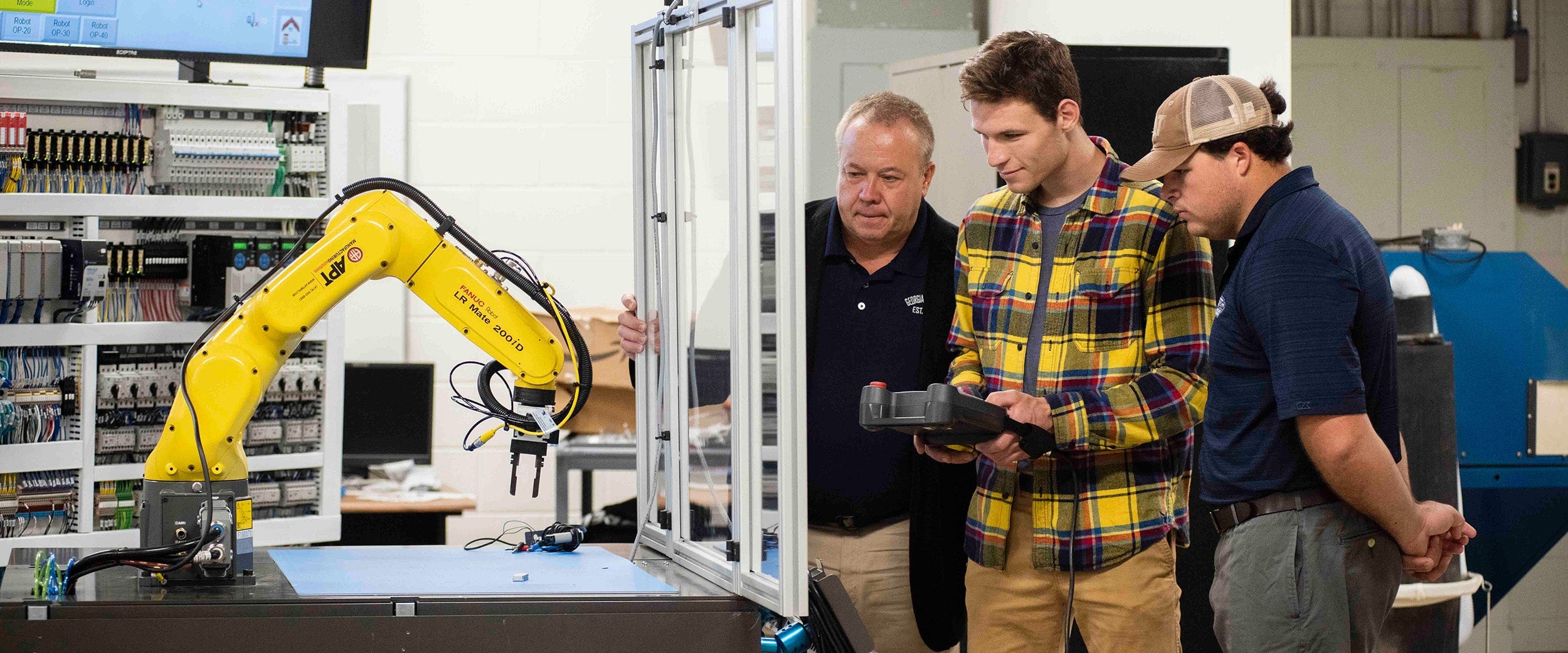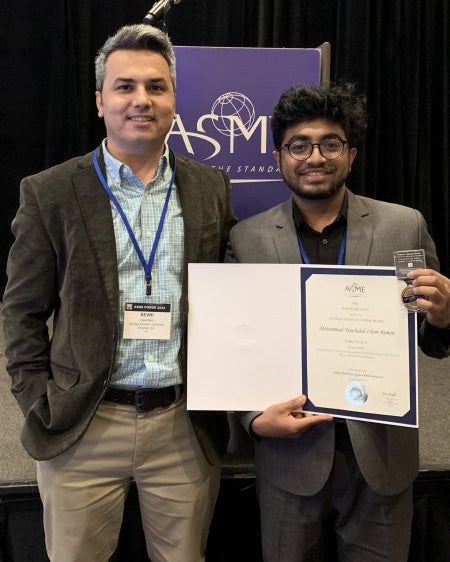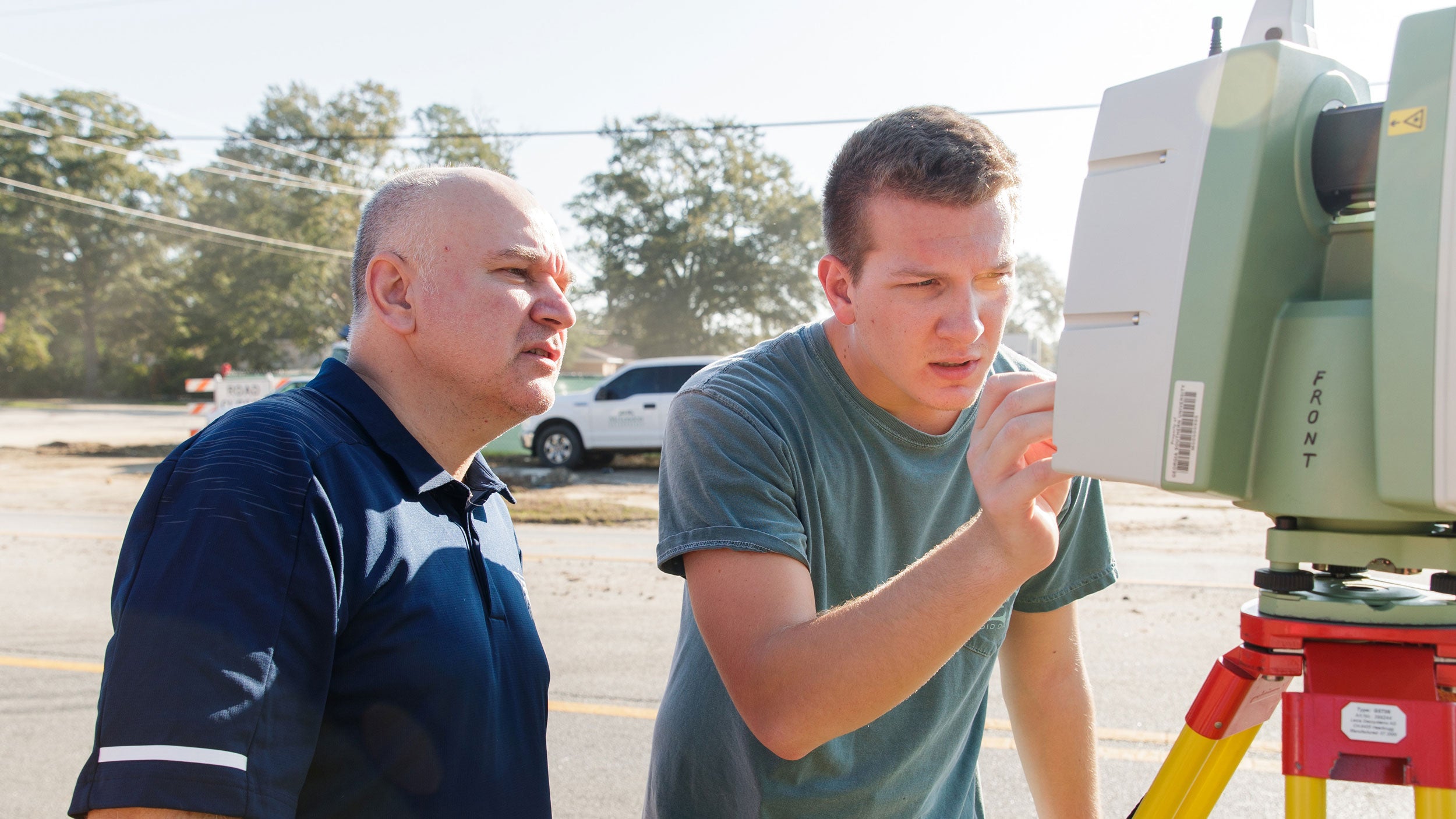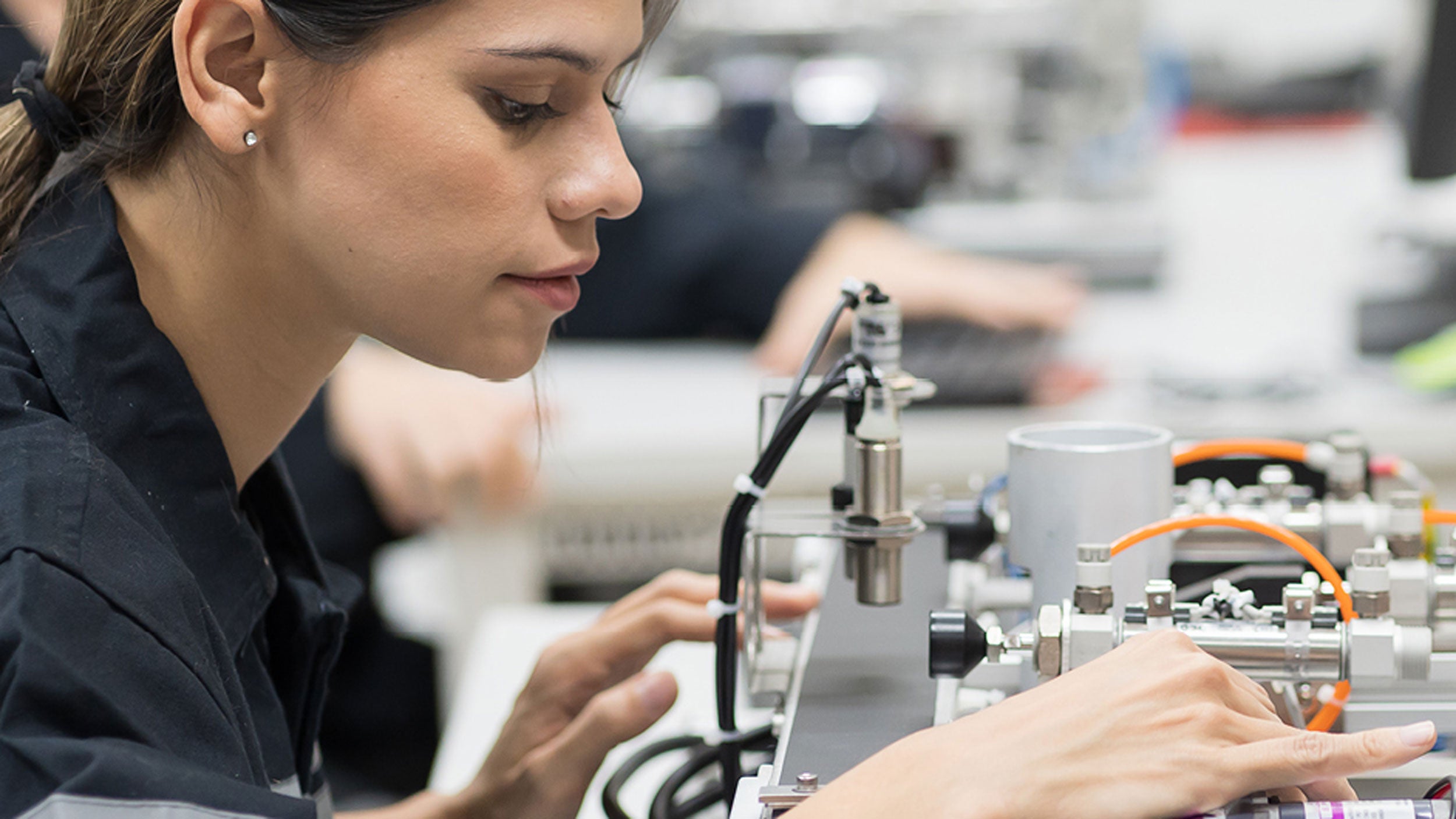Unlock additional career opportunities and grow as a professional in a stimulating environment of active research and collaboration.
Locations
- Statesboro Campus (In Person)
Why Earn a Master’s in Mechanical Engineering at Georgia Southern?
- Upgrade your skills and expand your opportunities and earning potential as an engineer.
- Specialize in a particular area of mechanical engineering, such as robotics, aerospace or renewable energy.
- Engage with faculty in cutting-edge research, contributing to new advances in the field.
- Grow your professional network as you connect with professors, fellow students and industry experts.
- 30 credit hours to completion.
Ascend to a new level as a professional engineer through Georgia Southern University’s Master of Science (MS) in Mechanical Engineering program. However you picture growing your influence, you’ll experience a rich, hands-on learning environment with access to a number of specialized labs and research facilities.
The adaptable curriculum deepens your understanding of the field and its subdisciplines through a robust set of electives that let you tailor your training to your career goals and continue building your skills. You’ll also have multiple opportunities to engage in research addressing real-world engineering challenges, including engaging in your own investigation and working alongside active faculty researchers. Faculty specialties encompass novel drug delivery techniques, sustainable energy, the simulation of fluid dynamics, additive manufacturing and more.
As a graduate, you’ll be equipped with the technical expertise, analytical skills and practical experience to excel, whether you plan to move into management, specialized research or doctoral studies.
Ready to Apply?
What Can You Do With a Master’s in Mechanical Engineering?
With expertise in your discipline and expanded research experience, you’ll be qualified to step into more advanced roles with higher pay, whether you want to take on managerial responsibilities or test the possibilities of existing and emerging technologies. Georgia Southern’s thesis track also serves as a stepping stone to doctoral studies in preparation for careers in academia.
Where our graduates work:
- Aerospace industry
- Automotive industry
- Biomedical field
- Information technology
- Manufacturing
- Oil and gas
- Product development
- Renewable energy
- Robotics
- Scientific research and development
- Transportation
What our graduates do:
- Aerospace engineer
- Biomechanics engineer
- Engineering manager
- Manufacturing engineer
- Production engineer
- Senior mechanical engineer
What You’ll Learn
Whether in the thesis or non-thesis track, all master’s students upgrade their knowledge of electro-mechanical systems, the principles of modeling and simulation, and research methods in engineering.
Fifteen credit hours of electives let you explore multiple applications or build expertise in a subdiscipline, including renewable energy, engine development, fluid dynamics, nanomanufacturing or technical management.
See the CurriculumEngineering Accreditation Commission (EAC)
The Bachelor of Science in Mechanical Engineering (BSME) degree program is accredited by the Engineering Accreditation Commission (EAC) of the Accreditation Board for Engineering and Technology (ABET). Click the relevant button below to learn more about the program’s educational objectives or student learning outcomes.
Program Formats
Customize your training to fit your career ambitions. Choose a thesis to prepare for research or Ph.D. programs or the non-thesis option to enhance your professional qualifications in a specific subdiscipline or application.
Thesis
Undertake a formal research project under individual faculty guidance. You’ll craft and publicly defend a written thesis on the basis of your investigations, gaining strategic experience for further studies.
Non-Thesis
Follow your curiosity in a unique direction, completing your studies by designing an experiment, investigating a topic, or conducting individualized research that will strengthen your résumé and position you as an innovator.
Research
Collaborate with faculty on impactful research in facilities like the Nanocomposite Material Science Lab and the Robotics and Intelligent Operation Systems Lab.
About ECE Research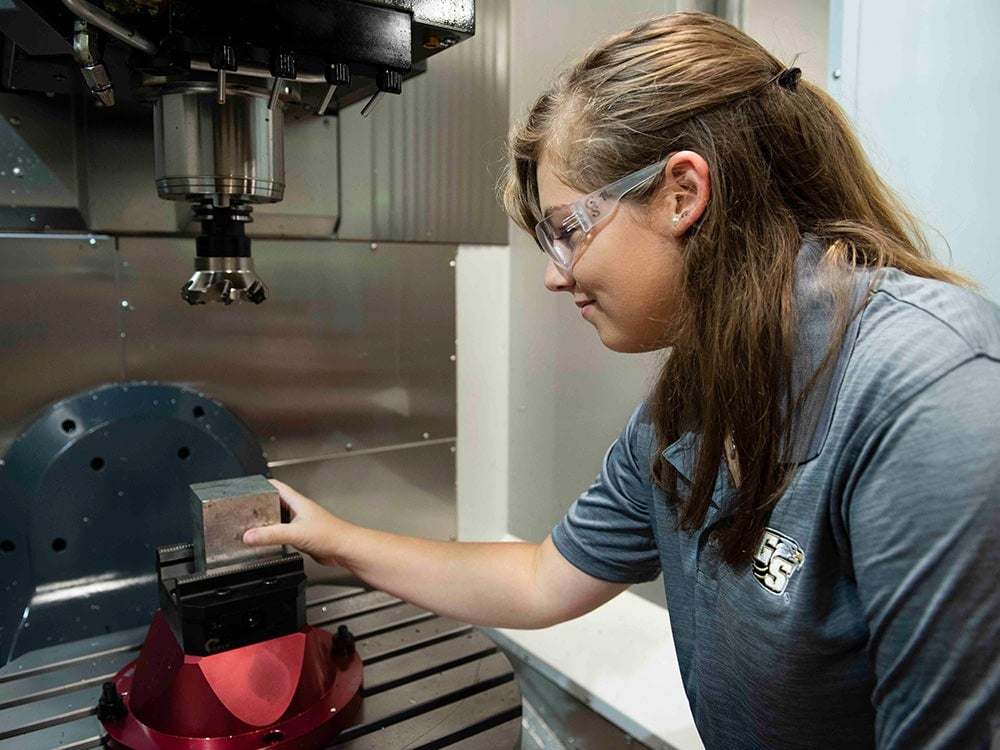
Want to Learn More?
Explore essential information about our MS in Mechanical Engineering program, including application details, accreditation status, and licensing disclosures. Gain insight into the program’s credibility and requirements to help you start your journey toward success with the knowledge you need.
Applicants for the MS in Mechanical Engineering program must have completed a bachelor’s degree in mechanical engineering or a related field at a regionally accredited institution with a minimum cumulative GPA of 2.75 (on a 4.0 scale).
To apply, please submit:
- An online application. (There is a $50 nonrefundable application fee.)
- Official English language test scores. (Required only for international applicants whose native language is not English. Minimum scores are 6.0 on the IELTS or 80 on the TOEFL.)
All supporting materials should be submitted directly to the Office of Graduate Admissions at gradadmissions@georgiasouthern.edu.
International transcripts must be evaluated by a NACES-accredited evaluation service. The evaluation must be course-by-course and include a GPA.
Application Deadlines
Students are admitted to begin in the fall and spring semesters. The application deadlines are as follows:
| Fall | Spring | |
|---|---|---|
| Priority Deadline | March 1 | October 1 |
| Final Deadline | July 1 | November 15 |
Your application and all required documents must be received by the deadline.
Provisional Admission
Provisional admission is granted to applicants who do not fully meet all of the admission criteria but show promise for success in graduate studies. A student may be granted provisional admission based upon the recommendation of the Graduate Program Coordinator and the Department Chair.
Contact Information
Dr. Shaowen Xu
Graduate Program Coordinator
shaowenxu@georgiasouthern.edu
912-478-5006
Faculty Feature
Study with faculty who are pioneers in the field. Professor Valentin Soloiu is the Director of the Sustainable Aviation Fuels Research Laboratory, where he leads a team investigating innovative fuels and combustion technologies.
Learn More About Professor Soloiu's Work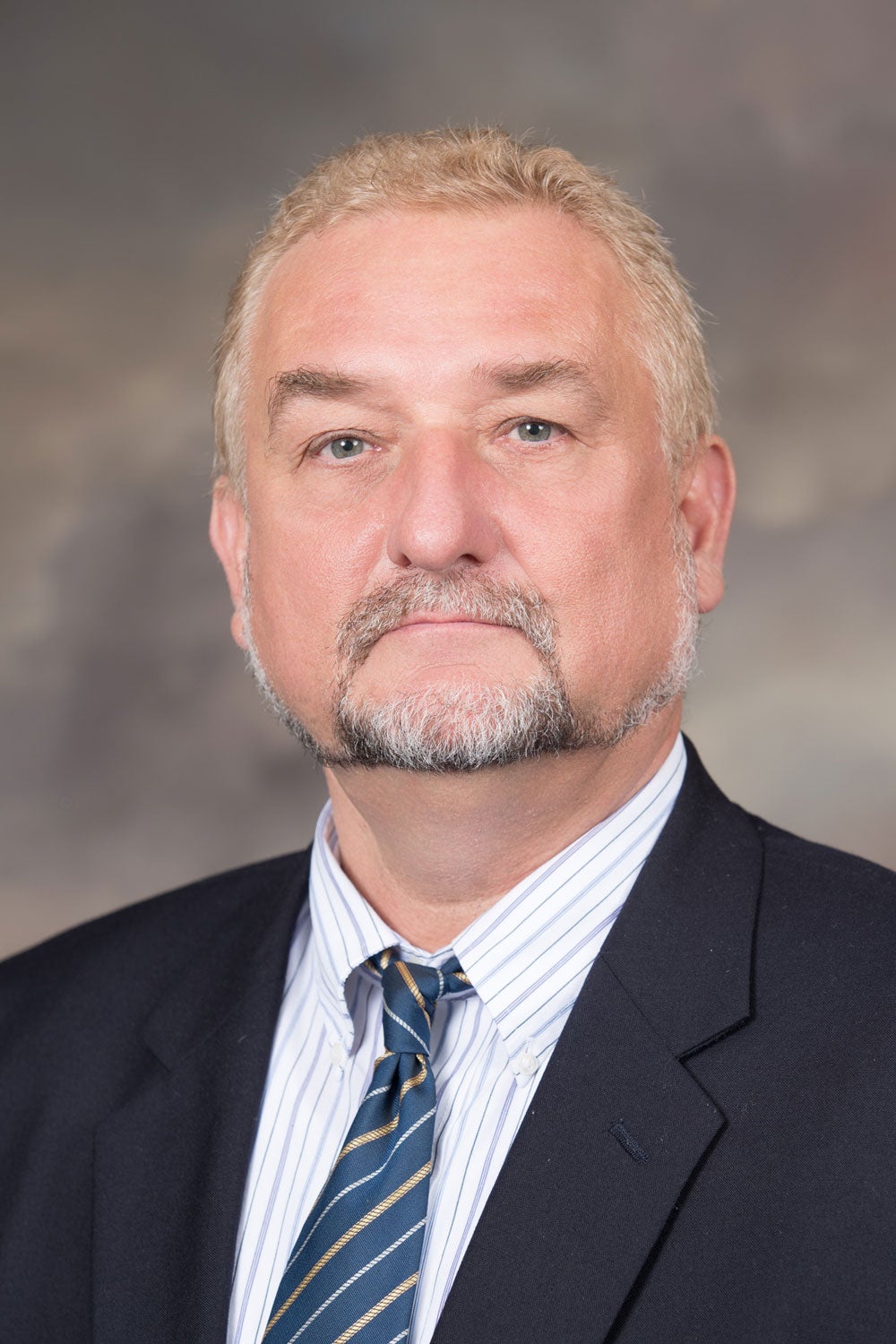
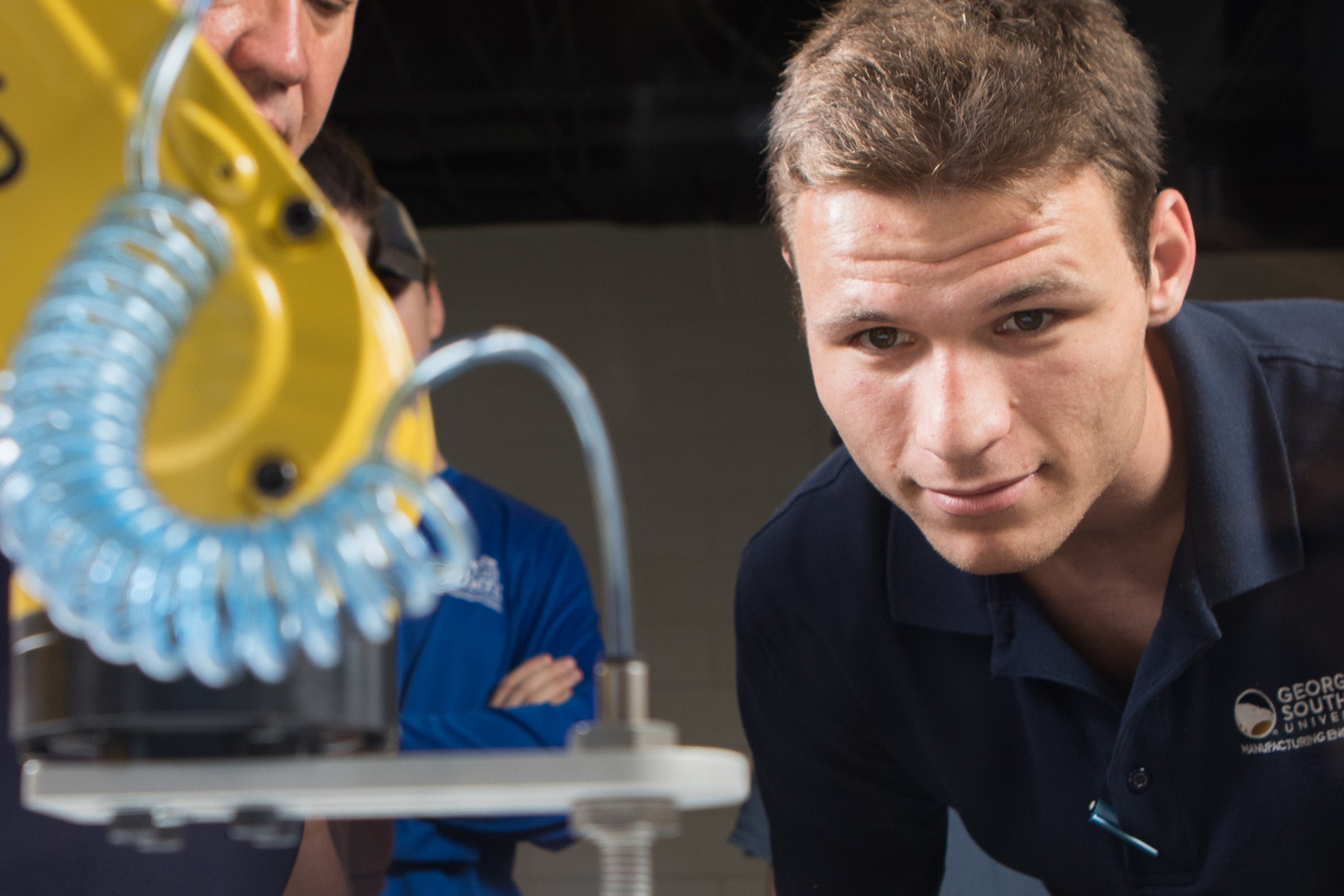
Take the Next Step
Join an innovative community as you build your qualifications for the next stage of your engineering career with a master’s in mechanical engineering from Georgia Southern.
Contact Us
Department of Mechanical Engineering
Dr. Shaowen Xu
Phone: 912-478-5006
shaowenxu@georgiasouthern.edu

